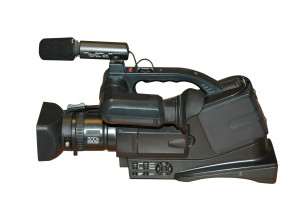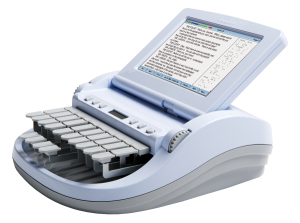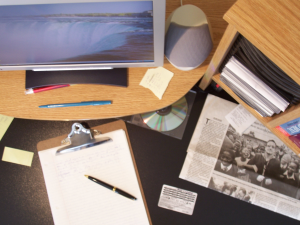 Having participated in many video depositions, we are often asked if we have any tips for preparing a witness for video. When planning our video deposition, here are a few areas you may want to consider.
Having participated in many video depositions, we are often asked if we have any tips for preparing a witness for video. When planning our video deposition, here are a few areas you may want to consider.
1. Clothing: Your witness should be advised to wear comfortable but professional clothing. Avoid clothing that has a bold pattern, such as stripes. Ask your witness not to wear loud ties or large jewelry. Black or white clothing can make it difficult to get the right camera exposure. Suggest to your witness that they wear light and pastel colors with no patterns. These colors will make it easier for the videographer to capture a good color balance. If your witness is wearing a jacket, ask him or her to keep the jacket on during the entire deposition.
2. Posture: A witness should look comfortable and natural. Ask your witness to sit up in the chair comfortably with both feet on the floor and lightly rest both hands on the table. You may want to ask your witness to avoid leaning back in a chair or crossing arms.
3. Facial Expressions: The main focus of the video will be on your witness’ face. Facial expressions, such as eye rolling or grimaces while a question is being asked, can be distracting to the viewer. Suggest to your client that he or she should maintain a pleasant neutral expression while listening to questions and answering.
4. Fidgeting: Your witness may be nervous and may unconsciously fidget. Instruct your witness that, even though a written transcript will not reflect fidgeting, it will be noticeable to viewers of the video.
5. Long Pauses: Ask your witness to avoid long pauses between a question and an answer. Long pauses may be interpreted by the viewer as evasive or signify that your witness is hiding something.
6. Visual Focus: Instruct your witness to look at the questioning attorney at all times. Looking straight into the camera is not desirable. Nor should your witness look up at the ceiling or down at the table while answering questions. If asked to read a document, instruct your witness to look down while reading, then look up at the attorney who is asking questions while answering. This will allow the viewer to clearly see and hear the witness while they answer.
7. Cell Phones: Before the deposition begins, ask all attendees to turn off their cell phones or wireless communication devices. Ringing cell phones can be distracting, especially if it is the witness’ own cell phone that is ringing and needs to be silenced. Even the “silent” setting can cause interference with the audio of the deposition.
8. Backgrounds: Place your witness in front of a blank wall or neutral backdrop. Do not place the witness in front of a window or large piece of wall art. Do not place the witness in front of an area where foot traffic will be occurring. Distractions such as these will detract from your witness’ professional appearance.
9. Lighting: If the lighting in the room causes excessive shadows on your witness’ face, move the witness to a better-lit area. You don’t need to bring in professional lighting, but pay attention that the lighting that is available is not a distraction to viewers of the video.
10. Certified Legal Video Specialist: When scheduling the video deposition, request a Certified Legal Video Specialist. Specialists are trained in how to properly record a video deposition. Professional camera and microphone equipment will eliminate unwanted distractions from poor quality video or audio.
Video depositions can be very beneficial to you when presenting evidence to a jury. With these simple tips, you will be able to prepare your witness and avoid unnecessary distractions that can diminish the usefulness of your video deposition.
To learn about other legal technologies, download our special guide “5 Technologies Every Attorney Must Have”.
 Finding and hiring a good court reporter is essential for an accurate record of a witness’ testimony. Here are a few simple things to take into consideration before you call a court reporter to schedule a deposition.
Finding and hiring a good court reporter is essential for an accurate record of a witness’ testimony. Here are a few simple things to take into consideration before you call a court reporter to schedule a deposition. If you have not yet used video in your legal depositions, it’s time to consider the many benefits that you can derive from this technology.
If you have not yet used video in your legal depositions, it’s time to consider the many benefits that you can derive from this technology. Streaming Realtime Transcription: Definition: The term for transcription by court reporters to deliver computer text, audio and video of speech within seconds of the words being spoken.
Streaming Realtime Transcription: Definition: The term for transcription by court reporters to deliver computer text, audio and video of speech within seconds of the words being spoken. Michigan law firms today know they need to stay up to speed on legal technology to stay relevant. For most lawyers, survival will depend upon the ability to harness technology to deliver greater value to clients.
Michigan law firms today know they need to stay up to speed on legal technology to stay relevant. For most lawyers, survival will depend upon the ability to harness technology to deliver greater value to clients.